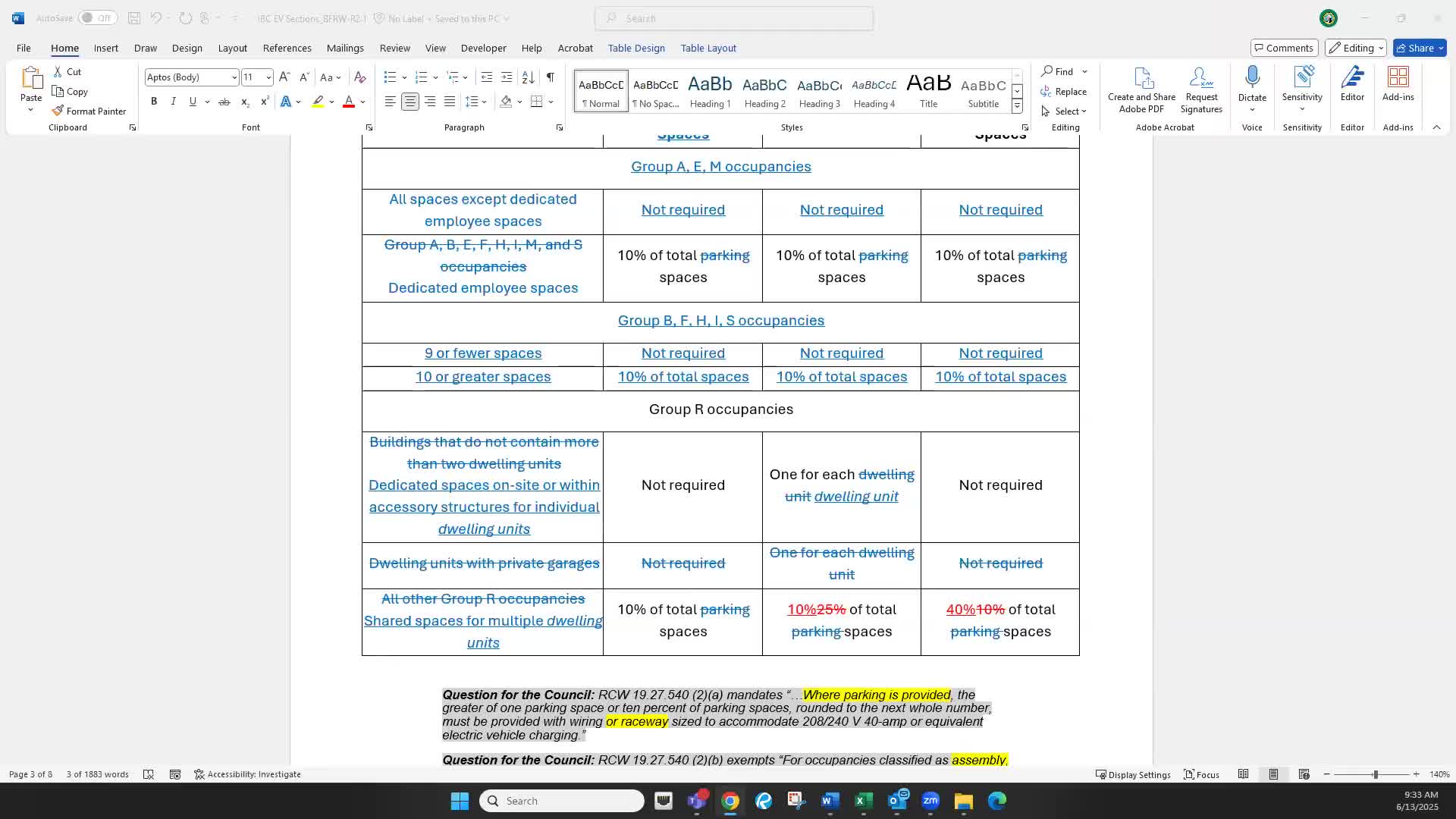Council debates EV ready versus EV capable spaces in new power plan
June 14, 2025 | Building Code Council, Governor's Office - Boards & Commissions, Executive, Washington
This article was created by AI summarizing key points discussed. AI makes mistakes, so for full details and context, please refer to the video of the full meeting. Please report any errors so we can fix them. Report an error »

On June 13, 2025, the Building Code Council convened to discuss critical updates regarding electric vehicle (EV) infrastructure in Washington. The meeting highlighted the ongoing debate over the balance between EV-ready and EV-capable parking spaces, reflecting broader concerns about sustainability and cost-effectiveness in building practices.
A significant point of discussion was the proposed reduction of EV-ready spaces from 25% to 10% in favor of increasing EV-capable spaces. Advocates for maintaining the current percentage argued that EV-ready spaces offer long-term cost savings and better support the growing demand for electric vehicles. Deepa, a committee member, emphasized that jurisdictions across the country, including those with lower EV adoption rates, are moving towards prioritizing EV-ready spaces. She cautioned against rolling back existing standards, stating that the upfront costs of EV-ready spaces are minimal compared to the potential savings for future tenants.
The committee also reviewed projections from the Northwest Power and Conservation Council, which suggested that by 2030, the target for EV-capable spaces should be set at 20%, with a long-term goal of 60% by 2045. This aligns with the state's commitment to increasing EV adoption and reducing carbon emissions. However, some members expressed concerns about the financial implications of these changes, particularly in the context of rising construction costs and the need for affordable housing.
The meeting concluded with a consensus to further investigate the cost differences between EV-ready and EV-capable spaces, as well as to consider public feedback during the upcoming CR 102 public comment period. The discussions underscored the council's commitment to balancing environmental goals with economic realities, as they prepare to finalize recommendations that will shape the future of EV infrastructure in Washington.
A significant point of discussion was the proposed reduction of EV-ready spaces from 25% to 10% in favor of increasing EV-capable spaces. Advocates for maintaining the current percentage argued that EV-ready spaces offer long-term cost savings and better support the growing demand for electric vehicles. Deepa, a committee member, emphasized that jurisdictions across the country, including those with lower EV adoption rates, are moving towards prioritizing EV-ready spaces. She cautioned against rolling back existing standards, stating that the upfront costs of EV-ready spaces are minimal compared to the potential savings for future tenants.
The committee also reviewed projections from the Northwest Power and Conservation Council, which suggested that by 2030, the target for EV-capable spaces should be set at 20%, with a long-term goal of 60% by 2045. This aligns with the state's commitment to increasing EV adoption and reducing carbon emissions. However, some members expressed concerns about the financial implications of these changes, particularly in the context of rising construction costs and the need for affordable housing.
The meeting concluded with a consensus to further investigate the cost differences between EV-ready and EV-capable spaces, as well as to consider public feedback during the upcoming CR 102 public comment period. The discussions underscored the council's commitment to balancing environmental goals with economic realities, as they prepare to finalize recommendations that will shape the future of EV infrastructure in Washington.
View full meeting
This article is based on a recent meeting—watch the full video and explore the complete transcript for deeper insights into the discussion.
View full meeting
